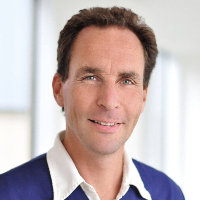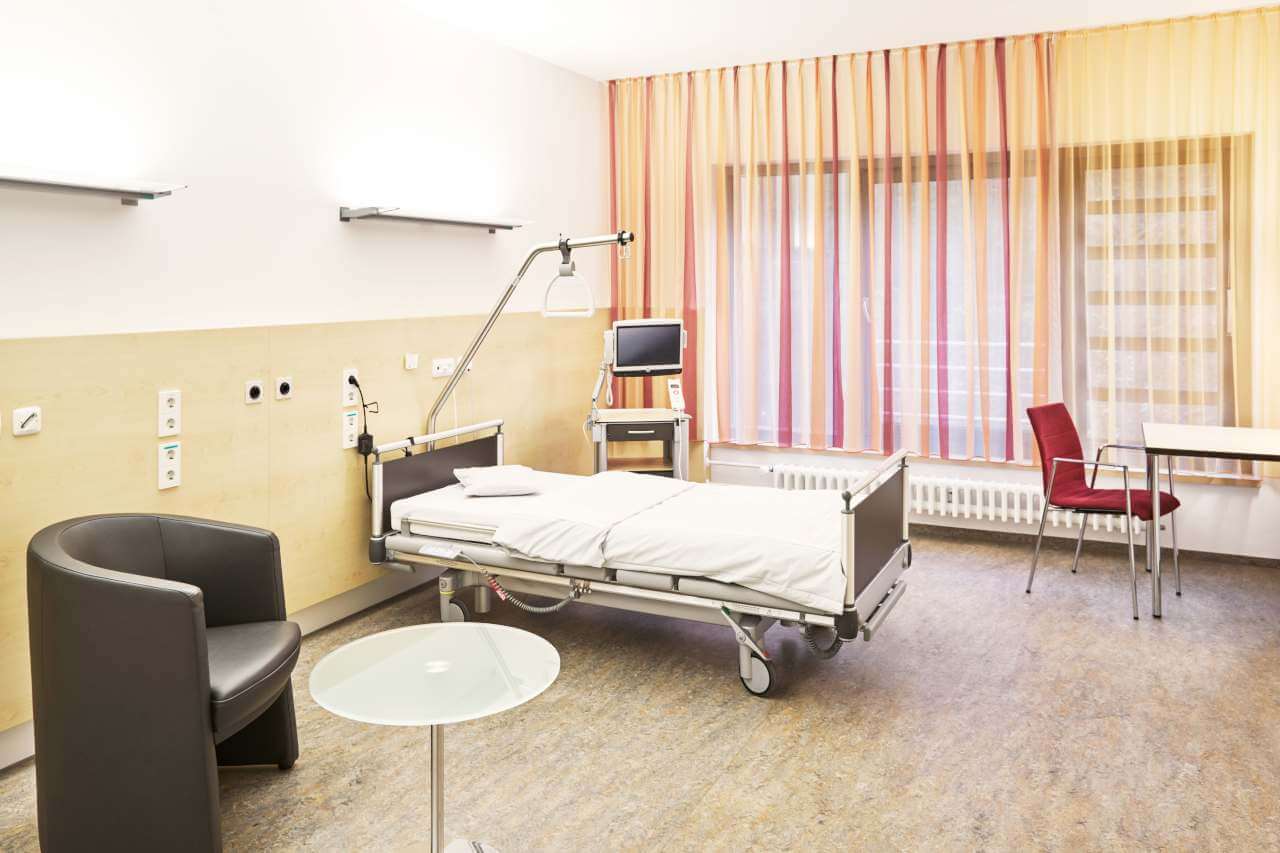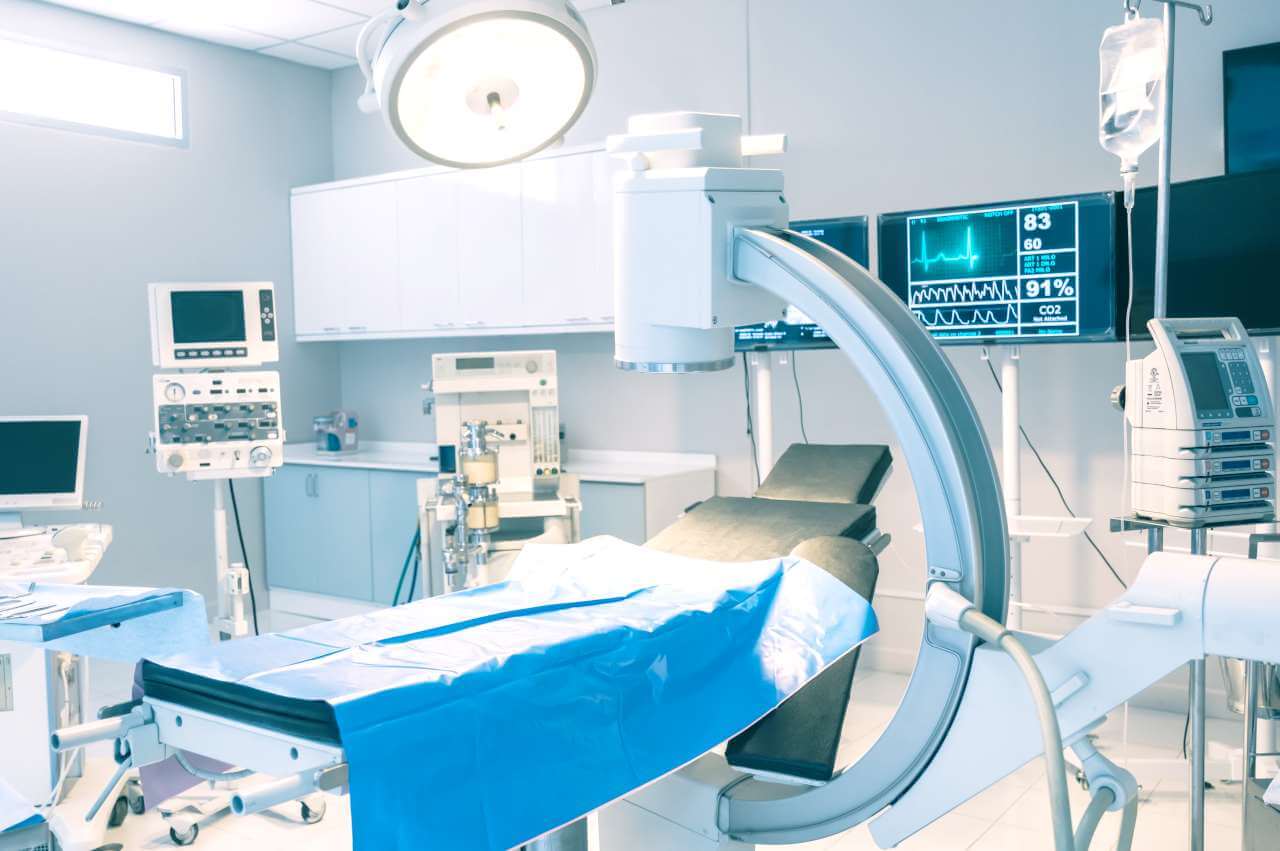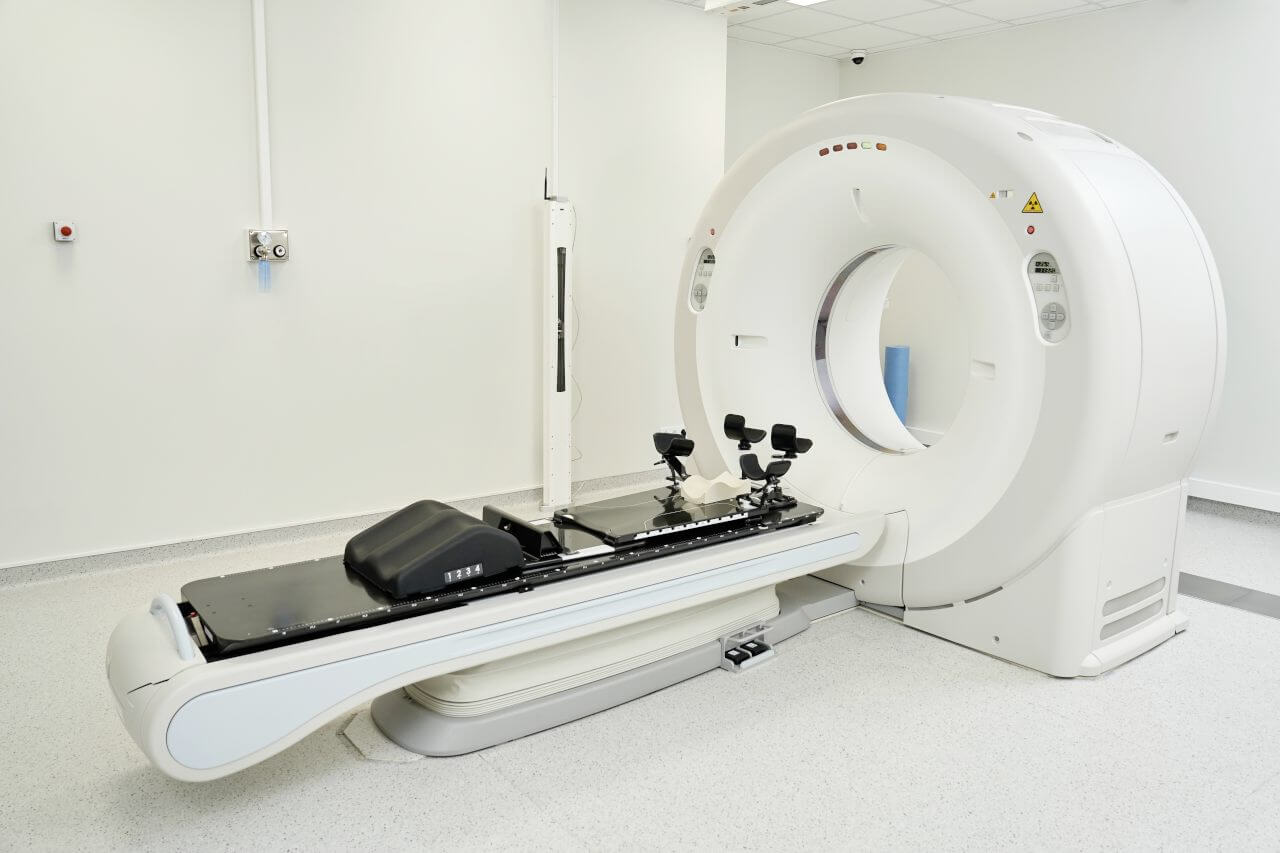
The program includes:
- Initial presentation in the clinic
- clinical history taking
- review of medical records
- physical examination
- laboratory tests:
- complete blood count
- general urine analysis
- biochemical blood test
- inflammation markers (CRP, ESR)
- blood coagulation analysis (aPTT, PT, INR)
- neurological examination
- functional X-ray of the head and neck
- electrophysiology study (if indicated clinically):
- ENMG (electroneuromyography)
- EEG (electroencephalography)
- SEPs (somatosensory evoked potentials)
- VEPs (visually evoked potentials)
- BAEP tests (brainstem auditory evoked potentials)
- CT/MRI scan of the head and neck
(if indicated clinically, additional cost is 650/1200€) - nursing services
- consultation of related specialists
- treatment by chief physician and all leading experts
- explanation of individual treatment plan
Required documents
- Medical records
Service
You may also book:
 BookingHealth Price from:
BookingHealth Price from:
About the department
The Department of Pediatric Neurology at the Academic Hospital of the University of Bonn Mechernich provides comprehensive medical care for young patients with diseases of the central and peripheral nervous system. The department began its work in 2008 and today enjoys the status of one of the leading medical facilities of this profile in Germany. The department has excellent diagnostic capabilities for a complete neurological examination of the child. The pride of the facility is a modern laboratory for electroencephalography, where both a classical version of the test and innovative computerized EEG with video monitoring in a state of wakefulness and sleep are available. The department also offers computed tomography (CT), magnetic resonance imaging (MRI), echoencephalography, neurosonography, and ultrasound duplex scanning of the cerebral vessels. The central place in the clinical practice of the department is given to the medical care of young patients with epilepsy, chronic headache, movement disorders (tic disorders, Tourette's syndrome, dystonia, tremor, chorea, ataxia, and others), neuromuscular diseases (cerebral palsy, muscular dystrophy, spinal muscular atrophy, and others), cerebrovascular accidents, malformations of the brain and spinal cord, and traumatic brain injuries. Children with urgent neurological conditions receive the necessary treatment in a specialized intensive care unit. The specialists of the department strictly follow the current clinical protocols and recommendations of the Society for Neuropediatrics (GNP). The Head Physician of the department is Dr. med. Herbert Schade.
One of the most common neurological disorders in children is epilepsy, a chronic disease of the brain. Its main manifestations are spontaneous epileptic seizures caused by abnormal electrical activity in the brain. The department's team of pediatric neurologists treats young patients with all types of epilepsy: generalized, focal, symptomatic, idiopathic, rolandic, and cryptogenic. Against the background of epilepsy, the child periodically experiences seizures of varying intensity, ranging from a weak, barely noticeable repeated contraction of muscles, to a full-blown seizure with involuntary motor activity of the limbs and the whole body, foaming from the mouth, and loss of consciousness. Seizures almost always occur spontaneously; in rare cases, there may be some provoking factors. The diagnosis of epilepsy is made on the basis of the results of a comprehensive examination, during which the specialists of the department perform electroencephalography of the brain, CT and/or MRI of the brain, electrocardiography to assess heart function, and laboratory blood and urine tests for a general assessment of the child's condition. An integral part of the diagnostic process is an assessment of the child's neurological status, a study of his or her medical history, and a thorough analysis of the frequency of epileptic seizures and the severity of symptoms during these seizures.
If the diagnosis is confirmed, the next step is to develop a personalized treatment plan for the child in order to achieve a complete cessation of epileptic seizures or at least a maximum reduction in their frequency and intensity. Therapy is based on the use of anticonvulsants, with the optimal drug for the child (in some cases, a combination of drugs is required) being selected solely on an individual basis by the attending physician. Strict adherence to the regimen and dosage of the drug prescribed by the specialist plays a very important role in the success of the treatment. If clinically indicated, drug therapy is supplemented with a ketogenic diet, which involves eating foods with an increased amount of fat, a reduced amount of carbohydrates, and a moderate amount of protein. In rare cases, the child may be prescribed surgery, for example, if the focus of epileptiform activity is a brain neoplasm.
The department's specialists also have exceptional expertise in caring for young patients with neuromuscular diseases such as cerebral palsy, muscular dystrophy, myotonic dystrophy, spinal muscular atrophy, and myasthenia. All of these conditions cause severe symptoms, including muscle hypotonia (low muscle tone), muscle weakness, muscle pain, limited mobility, and gait abnormalities. Unfortunately, to date there are no methods that can guarantee a complete cure for a child with neuromuscular pathology, so all treatment measures are aimed at relieving symptoms, slowing the progression of the disease, and providing the child with a reasonable quality of life. When developing a treatment plan for a young patient, the doctors of the department take into account the specific diagnosis, the stage of the disease, and the neurological status of the child. During the therapeutic process, various types of treatment are combined: drug therapy, wearing of special corsets and orthoses, physiotherapy procedures, exercise therapy, massage, and diet therapy. Young patients with neuromuscular diseases receive effective treatment and comprehensive care based on many years of experience and in-depth knowledge of pediatric neurology.
The department also regularly consults children and adolescents with chronic headaches, movement disorders, neuralgia, inflammatory diseases of the brain, behavioral disorders, mental retardation, and other neurological disorders. The doctors of the healthcare facility select the optimal set of diagnostic measures for each patient, based on the results of which they develop the most effective treatment plan, focusing on the standards of the Society for Neuropediatrics (GNP).
The department specializes in the diagnosis and treatment of the following neurological diseases in children and adolescents:
- Epilepsy
- Chronic headaches
- Movement disorders
- Tic disorders
- Tourette's syndrome
- Dystonia
- Tremor
- Chorea
- Ataxia
- Neuromuscular diseases
- Cerebral palsy
- Muscular dystrophy
- Spinal muscular atrophy
- Myotonic dystrophy
- Myasthenia gravis
- Charcot-Marie-Tooth disease
- Cerebrovascular accidents
- Stroke
- Brain and spinal cord malformations
- Traumatic brain injuries
- Neuralgia
- Attention deficit hyperactivity disorder
- Autism
- Mental retardation
- Inflammatory diseases of the brain
- Meningitis
- Encephalitis
- Other neurological disorders
The range of diagnostic and therapeutic services provided by the department includes the following:
- Diagnostics
- Classical electroencephalography
- Innovative computerized electroencephalography with video monitoring in the state of wakefulness and sleep
- Computed tomography (CT)
- Magnetic resonance imaging (MRI)
- Echoencephalography
- Neurosonography
- Ultrasound duplex scanning of the cerebral vessels
- Treatment
- Drug therapy: tablet medications, injections, and infusions
- Physiotherapy procedures
- Exercise therapy
- Massage
- Intensive care
- Other medical services
Curriculum vitae
Higher Education and Professional Career
- 1986 - 1992 Medical studies, Justus Liebig University Giessen.
- 1989 - 1994 Thesis defense, Institute of Microbiology, Justus Liebig University Giessen.
- 1992 - 1997 Assistant Physician, Department of Pediatric and Adolescent Medicine, Vincentius Hospital Landau.
- 1998 - 1999 Physician, Department of Neonatology, St. Olga Hospital Stuttgart.
- 1999 - 2005 Senior Physician, Department of Pediatric and Adolescent Medicine, Academic Hospital of the University of Bonn Mechernich.
- Since 2000 Lecturer at the University of Bonn.
- Since 11.2005 Head Physician, Department of Pediatric and Adolescent Medicine and Department of Pediatric Neurology, Academic Hospital of the University of Bonn Mechernich.
- Since 01.2024 Deputy Medical Director, Academic Hospital of the University of Bonn Mechernich.
Board Certification and Qualifications
- 1997 Board certification in Pediatric and Adolescent Medicine.
- 2000 Specialization in Neonatology.
- Since 2006 Venia legendi in Pediatric and Adolescent Medicine.
- 2006 Specialization in Pediatric Neurology.
- 2007 Specialization in Naturopathy.
- Since 2016 Additional qualification in Specialized Genetic Counseling.
- Since 2020 Qualified Specialist in Internal Medicine (family doctor).
- Since 2021 Venia legendi in Pediatric Neurology.
Memberships in Professional Societies and Organizations
- Since 2000 Member of the Working Group for Training Bronchial Asthma Patients in Euskirchen.
- Since 2001 Chairman of the Professional Association of Pediatricians of the Euskirchen District.
- 2003 - 2023 Head of the Continuing Education Courses of the German Professional Association of Pediatricians (BVKJ) in North Rhine-Westphalia.
- Since 10.2007 Head of the Continuing Education Courses of the German Professional Association of Pediatricians (BVKJ) in the Federal Republic of Germany.
- Since 2011 Deputy Chairman of the German Professional Association of Pediatricians (BVKJ).
Photo of the doctor: (c) Krankenhaus Mechernich
About hospital
The Academic Hospital of the University of Bonn Mechernich offers comprehensive healthcare services in accordance with the highest university medicine standards. The health of patients is in the safe hands of a large team of highly qualified physicians and nurses, numbering more than 1,000 employees. The Academic Hospital of the University of Bonn Mechernich treats more than 20,000 inpatients each year, and a large number of patients are also served on an outpatient basis. In 2014, the medical complex successfully passed the DIN ISO 9001:2015 certification process, with subsequent recertification in 2017.
The hospital has 13 departments and 10 highly specialized centers. The main areas of clinical practice of the medical facility are spinal surgery, pediatric neurology, vascular surgery, knee and hip arthroplasty, surgical treatment of hernias, and treatment of urological and gynecological diseases.
The clinical practice of the Department of Spinal Surgery, which is certified by the German Spine Society (DWG) as a specialized center in its field, deserves special mention. The department's team of spine surgeons performs more than 800 surgical procedures each year with outstanding success, ranging from routine to the most complex. Special attention should also be paid to the Department of Pediatric Neurology, whose specialists provide comprehensive medical care for young patients with nervous system pathologies, with special emphasis on the treatment of cerebral vascular disorders, inflammatory and autoimmune diseases of the nervous system, malformations of the brain and spinal cord, and traumatic brain injuries. The Department of Vascular Surgery has an outstanding record of success and its fruitful work has been recognized by the certificate of the German Society for Vascular Surgery and Vascular Medicine (DGG). The department offers conservative, interventional, and surgical treatment of a wide range of vascular diseases using the latest therapeutic methods. The Academic Hospital of the University of Bonn Mechernich is also justifiably proud of its excellent results in hernia surgery: the specialized center, certified by the German Hernia Society (DHG), operates on more than 300 patients a year with inguinal, umbilical, diaphragmatic, femoral, and incisional hernias.
The Academic Hospital of the University of Bonn Mechernich focuses on providing highly effective medical care to each patient in the most comfortable conditions possible. A strict quality management system in accordance with the DIN EN ISO 9001 standard allows for the careful monitoring of all work processes in the healthcare facility, thereby ensuring a high quality of medical services.
Patients are cared for by expert physicians with years of clinical experience and in-depth medical knowledge. The specialists are always open to personal communication with the patient and strive to support them in every possible way on their path to recovery. The team of doctors at the Academic Hospital of the University of Bonn Mechernich has excellent medical and technical resources and the latest developments in European university medicine to ensure the best treatment outcome for each patient.
Photo: (с) depositphotos
Accommodation in hospital
Patients rooms
The patients of the Academic Hospital of the University of Bonn Mechernich stay in comfortable single and double rooms with a modern design. For the comfort of the patients, each room has an ensuite bathroom with a shower and toilet. The patient rooms are equipped with a comfortable, automatically adjustable bed, a bedside table, a wardrobe, a table and chairs, a telephone, and a TV. Each patient room has Wi-Fi.
If desired, the patient can choose to stay in a deluxe room.
Meals and Menus
The hospital offers delicious and balanced meals three times a day: breakfast, lunch, and dinner. Breakfast and dinner are served as a buffet, and for lunch there is a choice of several set menus to choose from.
If, for some reason, you cannot eat all of the foods, you will be offered an individual menu. Please inform the medical staff of your dietary preferences prior to treatment.
The hospital also has a cozy cafe "Café für elise" with a wonderful selection of drinks, snacks, salads, hot meals, and desserts.
Further details
Standard rooms include:
![]() Toilet
Toilet
![]() Shower
Shower
![]() Wi-Fi
Wi-Fi
![]() TV
TV
Religion
There is a chapel on the grounds of the hospital, where worship services are held every Sunday.
The services of representatives of other religions are available upon request.
Accompanying person
Your accompanying person may stay with you in your patient room or at the hotel of your choice during the inpatient program.
Hotel
You may stay at the hotel of your choice during the outpatient program. Our managers will support you for selecting the best option.




